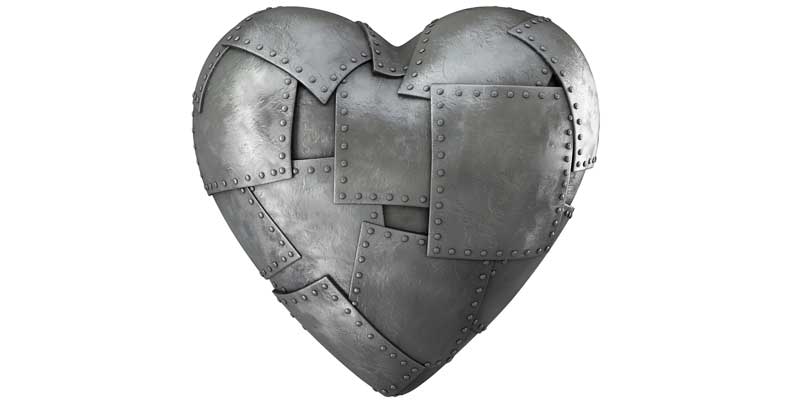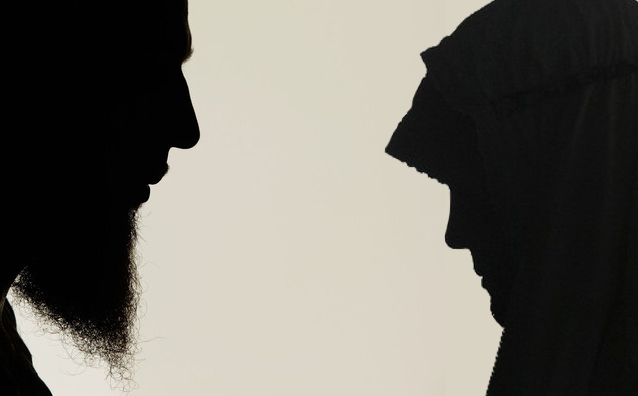بِسْمِ اللهِ الرَّحْمٰنِ الرَّحِيْمِ
As Muslims we know that the source of evil actions is a corrupted heart. However, within this notion of corruption there are issues which are apparent on the outside and there are others which aren’t so obvious.
An example of this could be in people of knowledge or students of Islam – people in the Ummah who are studying the Deen. Studying Islam is a must for all Muslims but there are certain individuals who pursue it more than others and this can apply to those who advise others on matters of the religion.
These individuals tend to gain some knowledge and teach it to others but the intention is not always pure. We have an issue of ego within many groups and individuals in our society. They look down on others based on their apparent behaviour or school of thought or the sheikh they listen to.
Even the scholars themselves have this problem, refuting each other without any real basis – simply to put others lower than themselves. This ego problem can lead to a hardened heart.
The root cause of this attitude is when one does not truly understand who Allah is or through their journey in life has forgotten who their creator is. No scholar or teacher or student or layman Muslim is the source of goodness – only Allah is the true source. When we forget that, we replace the appreciation of Allah with the appreciation of our own selves.
Some people can look very religious, they have the facade of a pious Muslim, they have all the knowledge and the right words. The beard or the khimar is there, all worn properly – on the outside they seem to be pure Muslims yet on the inside there’s an ego; an urgency to show supremacy, to show that they are more qualified than others.
This sense of supremacy is known as “kibr” – arrogance. As we know, the prophet (ﷺ) said: “No one who has an atom’s weight of arrogance in his heart will enter Paradise.” A man said, “O Messenger of Allah, what if a man likes his clothes and his shoes to look good?” He said, “Allah is Beautiful and loves beauty. Arrogance means rejecting the truth and looking down on people.” [Muslim] Being denied Jannah is not a small matter as there is only one other place to go.
We have one one hand the “bad Muslims”; drink alcohol, parties, zina etc. – these people’s actions are outwardly, most of the time they can easily be recognised. However, the issue of ego is inwardly – it can’t be seen by others, in most cases. In no way should we condone outwardly sins – those are punishable for sure; but which of these situations is easier to fix? Think about it.
When a sin is on the outside it can be addressed by others and helped, but when it comes to arrogance, the only one that can sense it is the person himself.
If this problem is not fixed, the outwardly deeds will hold no value due to the heart not being in the right place. As Allah says:
The Day when there will not benefit [anyone] wealth or children
[26:88-89]
But only one who comes to Allah with a sound heart.”
Brothers and sisters, we must take a step back and judge our own hearts. The deen is for Allah and not to serve our own selves.
A few signs that can tell us if we have this problem could be if we get offended when someone corrects us in our deen. The correction could be completely wrong but our first thought should not be to take offence but instead to look at the good the advice may have and leave the bad.
Another sign could be taking offence when our opinion is not heard, not taken into consideration by others. Our intention should always be for Allah – if it is then it should not matter if others do not take it as our rewards will be with Allah either way.
A further sign could be that we find it easy to sin in private. There is an outer shell that others see but when we are alone, the evil within comes out – ego can lead to this since if the heart is no longer soft, sins will no longer affect us.
If we find ourselves not being moved by Allah’s words through reading or listening or tafsir of the ayahs, whatever it may be – this could be a sign of ego or a hardened heart. If the deen simply becomes a routine, the Qur’an just becomes something we read and salah is just something we do – this could be an inwardly problem. Allah says:
Has the time not come for those who have believed that their hearts should become humbly submissive at the remembrance of Allah and what has come down of the truth? And let them not be like those who were given the Scripture before, and a long period passed over them, so their hearts hardened; and many of them are defiantly disobedient.
[57:16]
We can only help ourselves with this, no other person can assist as it is unseen and must be judged on an individual level.
May Allah rid all our ego, purify our intentions and soften our hearts.
Allah knows best.








